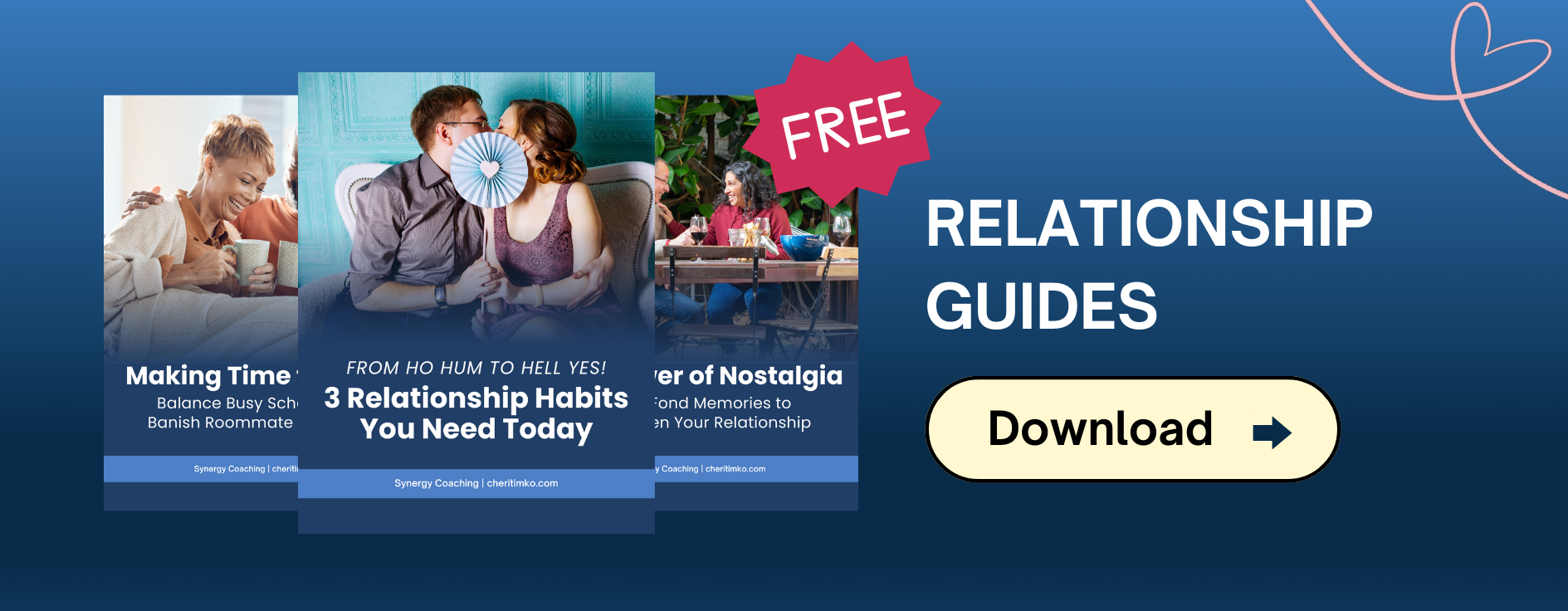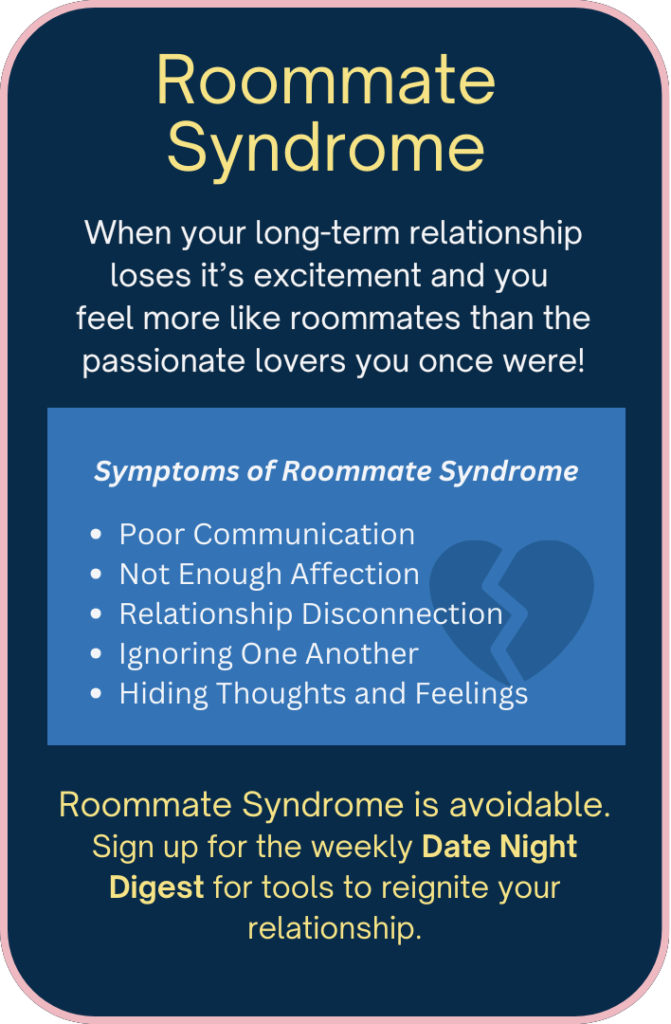It takes a lot of work to have a family. Even without kids, usually there are many aspects of life that have to be managed. Most couples share the work using some level of specialization. You manage some of the work while your partner handles other tasks. Dividing the work is one of the benefits of being in a relationship.

When you take a role, you take responsibility for all of the steps of it. This is true even if your partner takes a piece of the job. When specialization works well, each partner trusts the other to:
- track the task,
- do the work required for maintenance,
- ask for feedback when it’s needed, and
- alert the other partner when there is a problem.
Specialization helps to simplify many areas of your shared life. Many jobs are easier when you share the load. When you combine a task for a group (in this case your family), it saves time for each individual member.
At its best, you each do the jobs that you enjoy and are easiest for you. Then you split any other tasks in a way that feels fair to both of you. Jobs you both dislike can be outsourced or frequently traded. For the sake of your relationship, neither of you should be assigned a terrible task forever. To work well, you need to have regular conversations about who does which jobs.
Examples of specialized roles are:
- managing the finances
- tracking children’s medical appointments
- one of you cooks, the other washes dishes
- washing laundry, cleaning the cars, cutting the grass, etc.

Of course, no system is without its flaws. As easy as it is to pass off some of the work of living, it is easy to get yourself into relationship trouble. Specialization in your relationship has some difficulties that you need to watch for if you want a good relationship.
Some common problems are:
- Your partner’s work is invisible. It is easy to exaggerate your own contribution when you don’t look for your partner’s contribution. This can lead to both partners believing they carry the bulk of the work.
- Either of you gets stuck doing a job that you hate for too long. When this happens, you start to feel taken for granted.
- You don’t re-evaluate the responsibilities when things change. Sometimes the decision about who does what gets made early in the relationship. Over time, changes can make a job more difficult or tedious. Bickering, irritability, and frustration are signs that one of you thinks the breakdown is unfair.
- Sometimes couples reassign personal care that belongs to their partner. A common example is when one partner is handles emotions for both of them. If one partner is angry, it is their partner’s job to soothe and calm them. This often is too big of a burden for one person. In general, each of you need to handle your own self-care needs.
- The partner who has the responsibility fails to ask for feedback from the other partner. If you are in charge of a task, you need to consider your partner’s needs, opinions, and feelings in your management of it. You must ask their opinions from time to time.
- Likewise, if you have given the responsibility to your partner, you must trust them to be the expert in that area. Blind trust is not required. But, as the expert, your partner has already put a lot of time and effort into managing the problem. Acknowledging that work goes a long way towards keeping the peace. Second guessing them sends the message that their work doesn’t matter.
- Taking no interest in the tasks that your partner does. When your partner handles a part of your life, they are making decisions on your behalf. If you don’t know anything about it, you could learn later that they made choices that you don’t agree with. When you leave it the entire job to your partner, they may feel lonely or burdened by the task.
- Having unspoken or implied expectations. If you ignore your partner or give them the cold shoulder, they may not guess that you want to switch jobs.
- When you use someone else’s standard to divide the work, you might be doing work that doesn’t suit you well. Some couples assigned tasks based on what works for other couples. Or they do it that way because “that’s the way we have always done it.”

The drawbacks don’t mean that you should split every job 50/50. Specializing may be a way to feel closer and more connected. It can make you feel taken care of by your partner. To be a strength in your relationship, you need to take certain precautions. It’s important that you:
- look for, acknowledge, and appreciate the work that your partner. Identify things they do that makes your life better.
- regularly check in with one another about the assignment of responsibilities. Especially when circumstances have changed (i.e. job changes, moving, having kids). Even if you are good at a task, it shouldn’t be yours forever.
- adjust your roles when one of you feels overwhelmed. If you assist when your partner can’t get to a task, you aren’t doing them a favor or helping them out. Instead, you are doing some of your work that your partner usually takes care of.
- hear complaints as a signal that it’s time to have a discussion.
- trust your partner to be the expert in their areas. That might even mean letting them clean up the mess if they miss some details.
- take care of your tasks without needing your partner to track the job.
One of the benefits of being in a relationship is that your life gets easier because you share the load. If that isn’t happening, it helps to take a good look at why things aren’t working smoothly. The work of life doesn’t have to be split evenly, but it does have to feel fair to each of you. Being intentional, thoughtful, and kind about the division of labor allows you both to enjoy and value the work you are doing.
If you see that the way you share the work in your relationship isn’t working for you, start making changes today with the free Relationship Guides.



